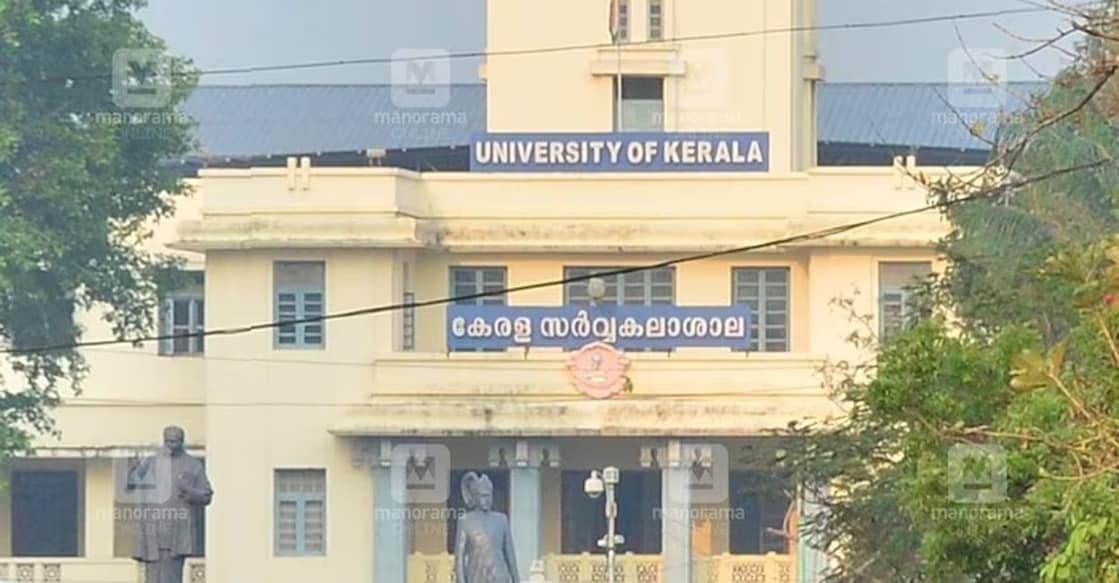12 of Kerala's 13 universities without regular VCs, a serious concern: HC

Mail This Article
The Kerala High Court has flagged the impasse between the Governor and the state government over control of universities, calling it a "serious concern" and "not in the best interest of higher education".
"It is a matter of serious concern that 12 of the 13 universities in Kerala are currently functioning without regularly appointed Vice-Chancellors," said the Division Bench of Chief Justice Nitin Jamdar and Justice Basant Balaji.
Furthermore, petitions are being filed in the High Court at nearly every stage of the appointment process, including temporary arrangements, the judges said. "This situation risks weakening the quality of higher education in the state."
The HC made these observations while dismissing a petition challenging the Governor's decision to place Prof Mohanan Kunnummal, Vice-Chancellor of the Kerala University of Health Sciences (KUHS), as interim Vice-Chancellor of the University of Kerala.
The petition was filed by Senate members Sivaprasad A, an associate professor at Bishop Moore College, Mavelikkara, and Priya Priyadarsanan, an assistant professor at SN College, Cherthala.
Delving into the circumstances that led to the Chancellor making the interim arrangement, the court found that the university did not have a regular VC because the senate was not nominating a member to the three-member search-cum-selection committee to appoint the VC, and now the senate members are opposing the interim arrangement. "We sincerely hope that appropriate steps are taken without delay to resolve the issues," the judgement said.
Why the impasse
The University of Kerala has been without a regular VC since Prof V P Mahadevan Pillai’s term ended on October 24, 2022.
With the senate failing to nominate its representative to the search and selection panel, Chancellor Arif Mohammed Khan placed Prof Mohanan Kunnummal, KUHS VC, in interim charge of Kerala University.
Prof Kunnummal remains the only regular VC among Kerala’s 13 universities, where the Governor serves as ex-officio chancellor.
Under the Kerala University Act, the search committee comprises nominees from the Governor, the UGC, and the University Senate, effectively giving the Union government a decisive say in state university appointments.
This balance, long accepted, became contentious after the BJP came to power, with Governors asserting independence and clashing with governments in Opposition-ruled states.
To counter this, the Kerala Assembly unanimously passed bills removing the Governor as ex-officio Chancellor and recasting the VC selection panel. But in November 2023, the Governor reserved the bills for the President, who rejected them in March 2025.
With no assent and legal challenges pending in the Supreme Court, the old framework remains in place -- prolonging the stalemate and uncertainty in university governance.
Prof Kunnummal’s interim charge was challenged on three grounds: He is over 60, does not hold a PhD, and the Chancellor ignored precedent by not appointing the senior-most professor as interim VC.
The HC dismissed all three. Referring to the SC's ruling in the Premachandran Keezhoth vs Chancellor case, the court held that the age limit under Section 10(5) of the Kerala University Act does not apply to reappointments or interim arrangements, as the Act is silent on both.
On the PhD issue, the court noted that Prof Kunnummal, an MD, became a professor in 2006, before the UGC required a PhD for professorship, and was appointed KUHS Vice-Chancellor in 2019. "Nothing is placed before us to show that the university’s institutional interest has suffered due to this arrangement," the judgement said.
Regarding seniority, the court ruled that the Act does not grant the most senior professor any right to be interim VC, nor does it bar the VC of another university from holding interim charge.

